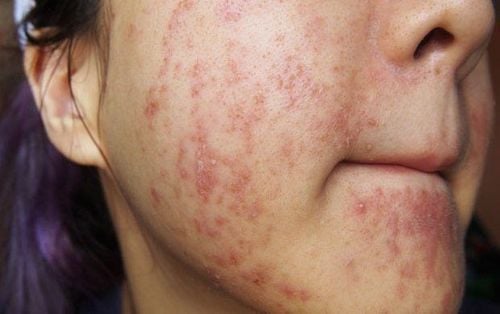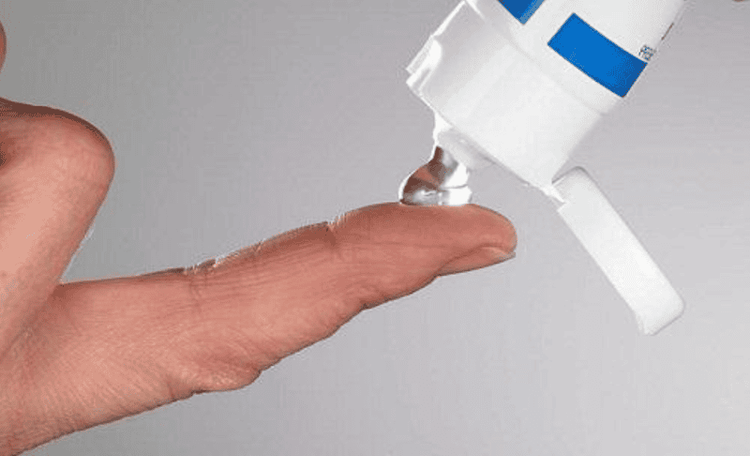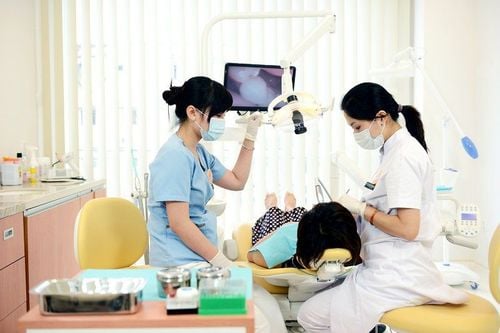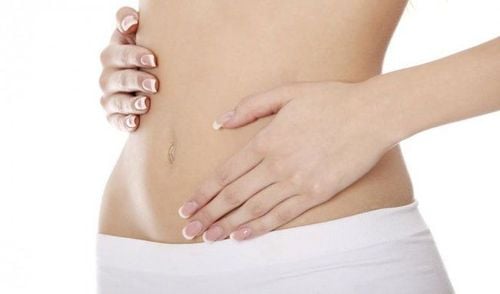This is an automatically translated article.
Skin is the largest organ of the body whose job is to protect internal organs, the earliest reflection of human health or the first impression of oneself to others. Accordingly, for puberty, this can be an unpleasant impression when having acne-prone skin. To improve this situation, it is necessary to know how to properly care for pubertal skin, bringing beauty and confidence to the skin.1. What is pubertal acne?
During puberty or adolescence, the body increases production of a hormone called an androgen. This hormone stimulates the production of an oily substance called sebum, which leads to oily skin that always looks greasy. This substance mixes with dead skin cells and hairs in skin pores called hair follicles. The accumulation of skin cells, oil, and hair together causes a blockage of the hair follicle, forming small, continuous pimples called comedones.As the acne structures grow, they can burst and cause dermatitis. In this condition, a bacteria called propionibacterium acnes or P. acnes, is also involved and creates a stronger inflammatory response, causing a skin infection. If you don't care for acne-prone skin properly, the infection will destroy the skin structure, and when it heals, it will cause scarring and make it unsightly.
Common locations for acne due to oily skin in puberty are the face, shoulders, back or on the chest and abdomen. In particular, the face is often the place that causes the most trouble and discomfort for children.
Other causes can also cause acne in teenagers such as:
Use of hormonal drugs Genetics Using oil-based makeup products Poor hygiene

Các vị trí thường gặp mụn trứng cá do da dầu ở trẻ dậy thì là mặt, vai, lưng hay trên ngực, bụng
2. Overview of how to care for acne-prone skin during puberty
A good starting point for good skin care is to always try to keep all acne-prone areas clean, along with a thorough but gentle cleansing of the skin at least twice daily with a specialized soap and plenty of water. Water acts by patting on each area of the skin without rubbing the skin. Vigorous rubbing on the skin, especially sensitive skin like the face, will easily irritate the skin, making acne worse.Avoid washing acne-prone areas with water that is too hot or too cold. Warm water is best so as not to aggravate the skin condition.
Besides, the selected skin care products also need to be cautious. Products that contain alcohol or other astringents or harsh cleansers can increase skin irritation and shrink pores, often making acne worse. At the same time, when it is necessary to apply sunscreen with outdoor activities, it is advisable to choose creams that are oil-free or hypoallergenic.
If the acne lesions are superinfected, ie with the participation of pathogenic bacteria, the doctor may prescribe topical antibiotics. Oral antibiotics or other acne medications such as isotretinoin are sometimes required to improve the texture of oily skin, limit acne formation, and improve the health of the skin's structure.
On the other hand, do not arbitrarily pick up or irritate acne by squeezing it or any other purposeful means to make it burst. Some children have a habit of putting their hands on their faces to touch or scratch acne to relieve pain, itching and discomfort. This can cause more inflammation, make the infection more severe, and more likely to spread. In addition, interventions on the skin in the treatment of acne-prone skin during puberty are also not recommended, such as avoiding hair removal, exfoliating...
Finally, puberty children also need to create habit of cleaning eyeglasses regularly; let the skin breathe, do not wear headbands, caps unless they are regularly cleaned; keep hair clean, neat and away from the face; for men, when shaving, be careful and use warm water to soften the beard first, use a clean, sharp razor; for women, avoid oily makeup and greasy hair products; Try to avoid stress and limit hot and humid climates that can cause or worsen acne.

Khi cần bôi kem chống nắng với các hoạt động ngoài trời, nên chọn các loại kem không chứa dầu hoặc không gây dị ứng
3. How to take care of acne-prone skin according to each type
Identifying the type of acne lesions that a teenager has during puberty is the first step in determining the right skin care regimen. There are four types of acne on oily skin that are common in these subjects:3.1. Blackheads (or open comedones) Blackheads are formed by pores clogged with debris on the surface of the skin, usually on the face, nose, forehead, neck, chest, and back. Blackheads have a black central nucleus, which is caused not by dirt, but by cells and oils in the hair follicles being oxidized by oxygen in the air.
Blackheads can be corrected by opening clogged pores with benzoyl peroxide gel applied sparingly 4 to 7 times a week. If this does not improve after a few months, your doctor may prescribe another medication. At the same time, teenagers need to be taught how to gently clean their skin twice a day. For girls who want to wear makeup, it is recommended to use facial products that help prevent blackheads from forming. These products must also ensure that they do not cause allergies to the skin.
3.2. Whiteheads (or cystic acne) When a cyst remains intact under the skin, the lesion produces a small bump or whitehead.
This condition can be treated with an over-the-counter benzoyl peroxide cream or with prescription medication.
3.3. Pimples and Pustules Pimples and pustules are small, pus-like lesions that form on inflamed skin. The inside of a pimple is usually filled with pus, dead skin cells, and bacteria.
Topical medications such as benzoyl peroxide or retinoids (which are prescribed topically) can often help. If you are using a product containing a retinoid, this product may cause skin irritation and sun sensitivity. However, retinoids are very effective in reducing inflammation and preventing new flare-ups.

Các loại thuốc bôi ngoài da như benzoyl peroxide hoặc retinoid thường có thể hữu ích đối với mụn nhọt và mụn mủ
3.4. Cysts or nodules These are deeper, painful lesions that occur when an infection inside the sebaceous gland causes the gland and surrounding area to become disfigured as the infection spreads below the surface of the skin.
Oral antibiotics or other acne medications such as isotretinoin are often needed to treat these types of lesions to help prevent scarring.
In short, taking care of acne-prone skin requires a gradual treatment plan, time and patience. At the same time, this is also a unique process for each child going through puberty, sometimes requiring help from parents and a dermatologist. It is important to explain to patients that oily skin acne is a feature of puberty, which usually disappears by the early 20s. However, for some people, acne can continue well. into adulthood or cause more severe skin damage if puberty skin is not cared for properly.
Vinmec International General Hospital is the address for examination, treatment and prevention of diseases, including Dermatology. When performing the examination process at Vinmec, customers will be welcomed and used modern facilities and equipment along with perfect medical services under the guidance and advice of experts. Good doctors, well-trained both at home and abroad.
Please dial HOTLINE for more information or register for an appointment HERE. Download MyVinmec app to make appointments faster and to manage your bookings easily.
References: stanfordchildrens.org, webmd.com, everydayhealth.com












